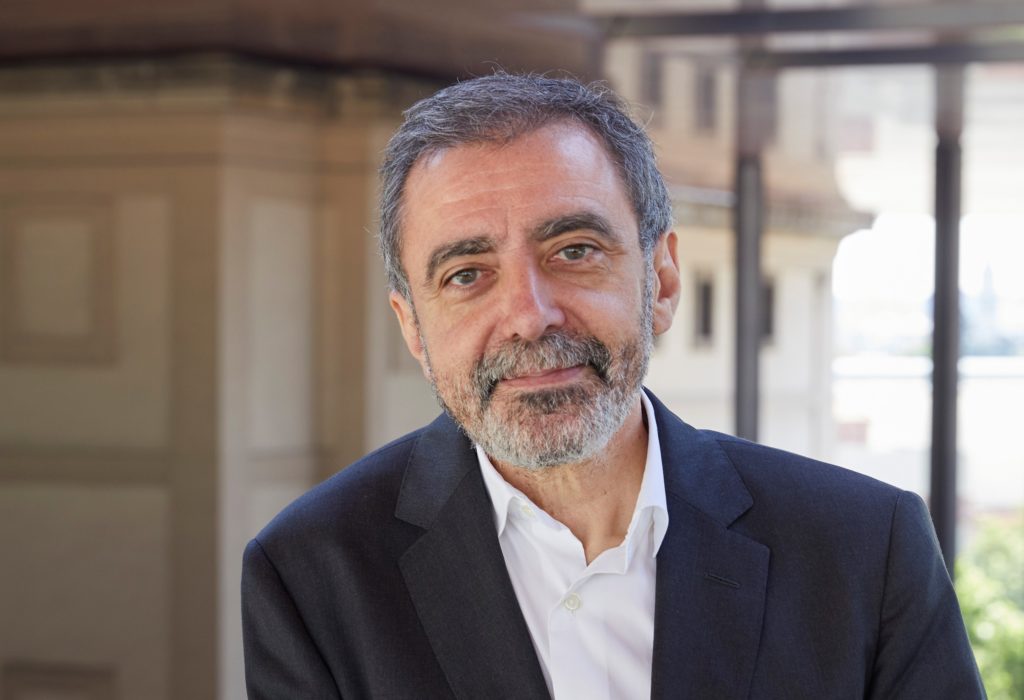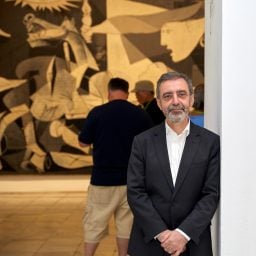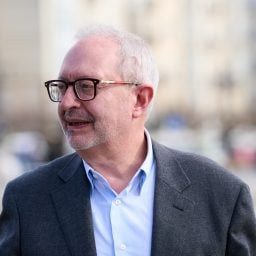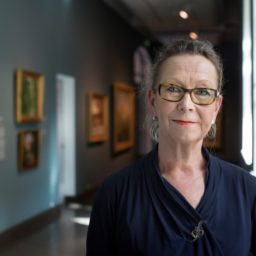It is hard to believe, but it was less than five weeks ago that Madrid’s art museums were thronged with visitors and its international art fair, ARCO, was in full swing. Now, the city’s art institutions are shuttered indefinitely and the fair’s venue has been transformed into a temporary field hospital. The director of Madrid’s Reina Sofía Museum has been working to keep his institution operating remotely in the hopes that it can serve as a beacon to those looking for inspiration. He reports that although some of his staff members are sick, none have died, and that they have kept their jobs thanks in part to Spain’s governmental assistance program. Borja-Villel has led Spain’s national museum of Modern and contemporary art since 2008 and also serves as a leading member of the Institute of Radical Imagination. As experts predict the coronavirus death toll has peaked in hard-hit Spain, the curator and art historian reflects on what the pandemic might mean for society and cultural life in the future.
Manuel Borja-Villel, director of the Museo Reina Sofía, Madrid
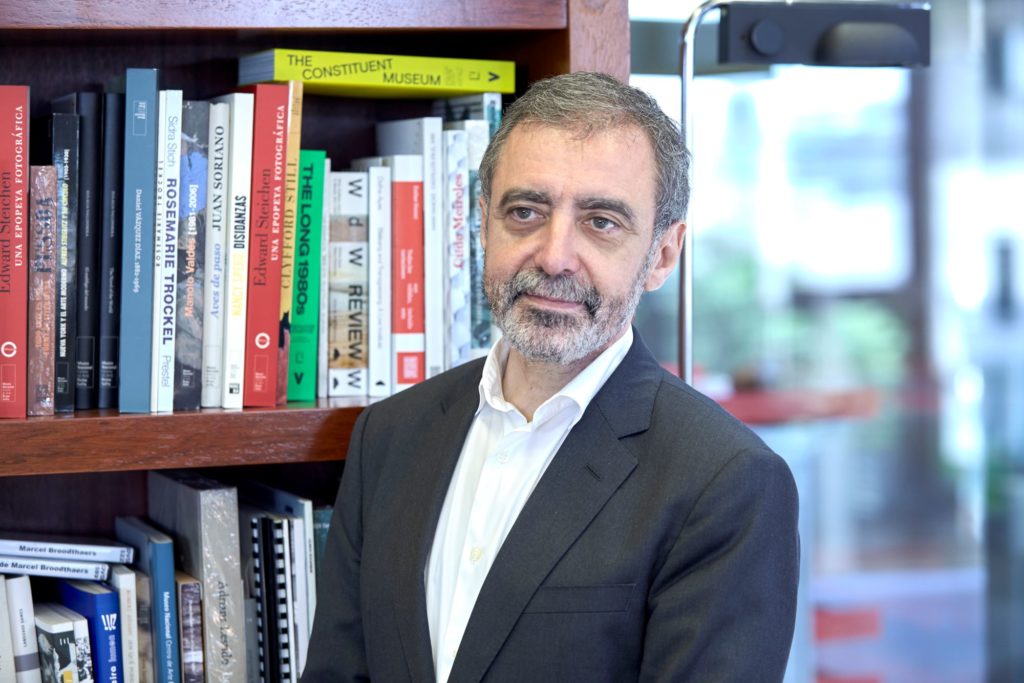
Photo courtesy of the Museo Reina Sofia.
Nobody could imagine this a month ago. Many of us were complaining about the state of the world in general, about how the health care system had been weakened, about the need to care more for nature, but no one could have imagined the emergency would develop so quickly, and that things would go this badly. There will be a “before” and an “after” this crisis. It will be a paradigm shift, just as everything changed after World War II.
The economic effects are going to be almost like a postwar situation when it is clear that what has happened is that the system failed. Things should not be like they were before. We will need something like a Marshall Plan for society and, of course, for culture—not to rebuild things as they were, but rather to imagine new worlds in which caring for other people and other species should be central.
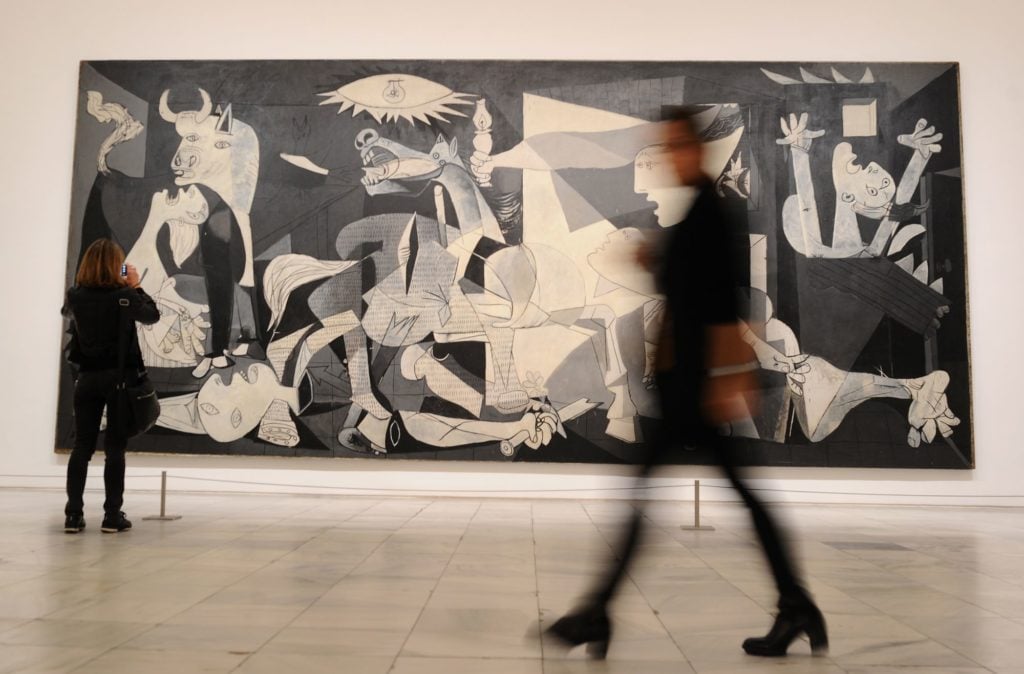
”Pity and Terror in Picasso: The Path to Guernica” at the Museo Reina Sofia in 2017. Photo by Denis Doyle, Getty Images.
In the art world, there are many things that need to be reconsidered. Eventually, museums will reopen, but will people be afraid of being close to one another? Will we be able to continue developing large exhibitions that are anti-ecological? Maybe blockbuster exhibitions are over. Maybe we should think more about process and research.
When the Reina Sofía reopens—certainly to begin with—we will have to limit the number of people in the Guernica room. But in addition to managing visitor flow safely, we also need to be careful that we do not turn into a society in which people are not empathetic, in which they are afraid even to touch each other. We cannot let public spaces disappear. There is an element of joy, of learning, and of democracy in being together with other people.
Right now, we are working with l’internationale, a confederation of European museums, to curate a visual manifestation of the balcony singing that has become so popular and uplifting in Italy. We have invited 14 artists initially to participate, but everybody will be included. We are asking them to create an intervention in their window, or on their balcony. They have complete artistic freedom, of course, but we are asking them to reflect on what it means to be on lockdown, and to imagine a better future. It is important to remember that human beings cannot be separated from nature, the importance of joy, and the importance of care.
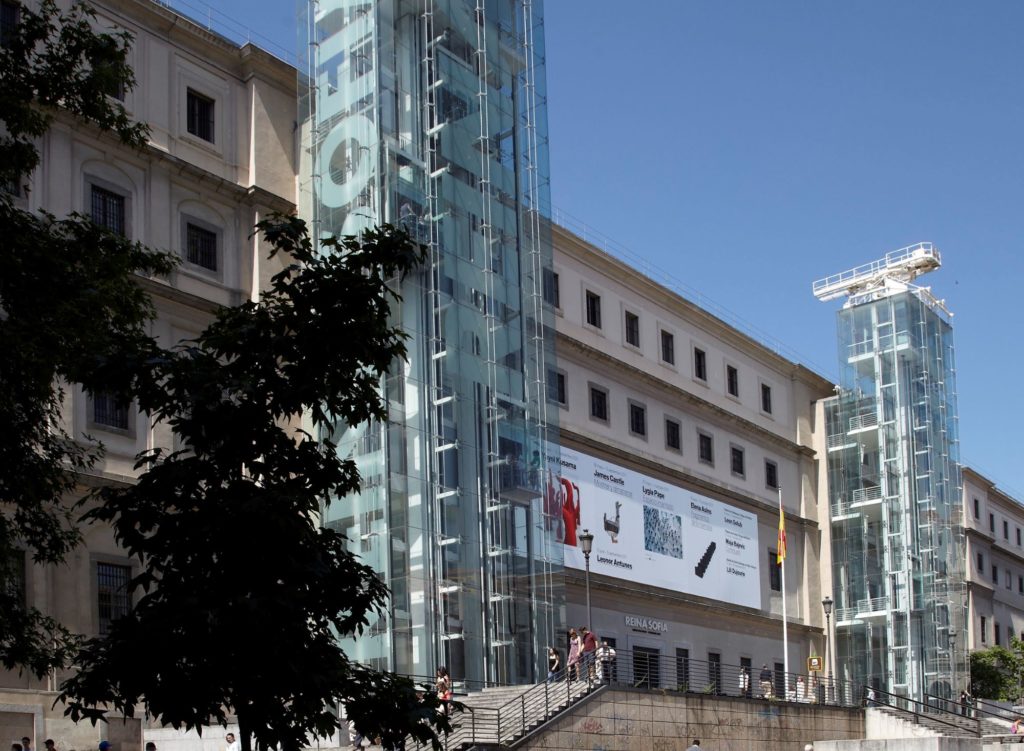
Museo Reina Sofia’s Sabatini Building is a former hospital. Photo by Joaquin Cortes/Roman Lores.
Fortunately, we have always been big believers in archives, so we have a huge resource that until now we have not been able to fully activate. We also have a radio program, we have videos, we have documents on our website. We are now working to make more of this material available for free. We always imagined that, eventually, we would make it free, so we have already paid for the rights.
At the same time, we are developing new programs online. One is a poignant lecture by the art historian José Emilio Burucúa, which he was supposed to deliver at the museum. He traveled through Paris but was caught there when the lockdown began. When he went back to Argentina, he had to go into quarantine, so we did the lecture through Zoom. It was very emotional. The title was, “Like a Bird, Hope Flies.”
As told to Javier Pes
